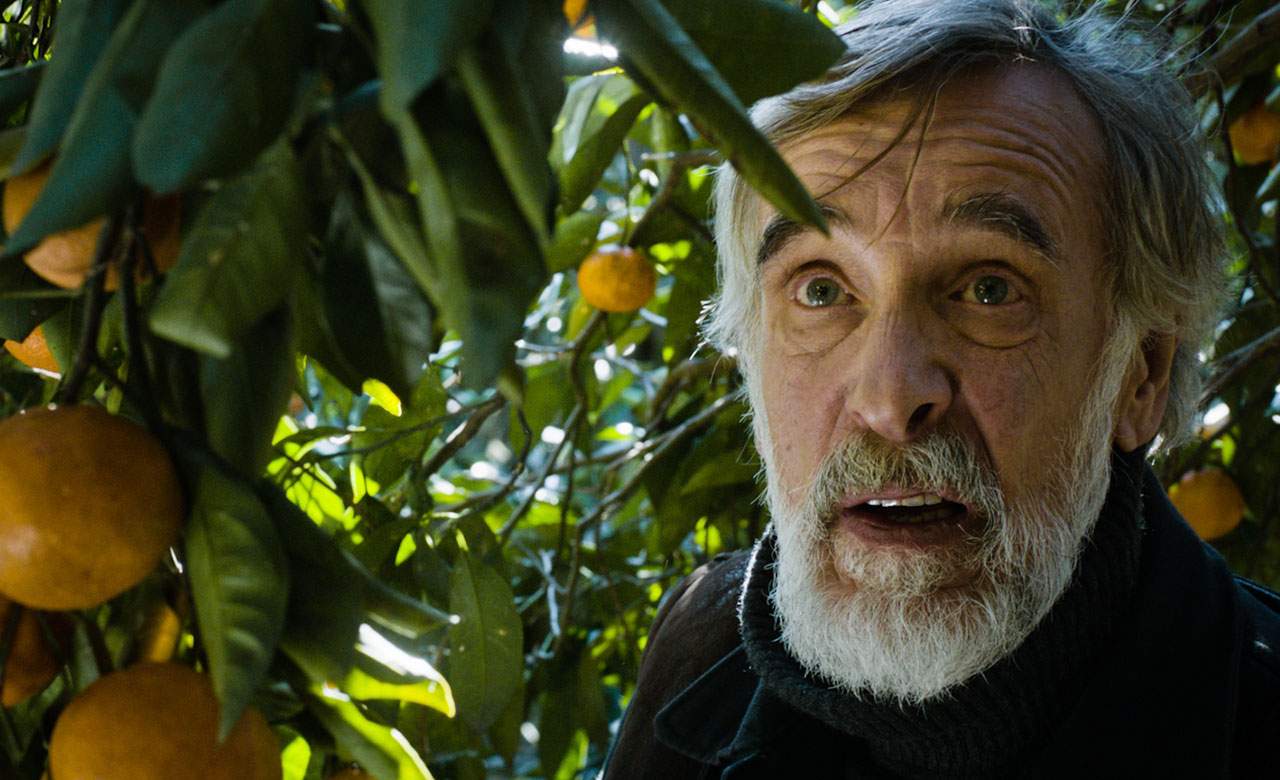Tangerines
A parabolic study of the absurdity of war.
Overview
Tangerines opens with the buzzing of an electric saw and a close up of a piece of wood split apart by the blade. It's a apt metaphor for the premise of the film—the 1992–1993 war that divided the Georgian and Abkhazian populations of Georgia (which had only recently been liberated from Soviet rule). The wood is deftly guided by the weary hands of Ivo, the driving character of the story, played by Estonian veteran actor Lembit Ulfsak. Ivo, a carpenter, is of Estonian descent, but has lived in Georgia all his life. His family fled the fast-approaching conflict, seeking shelter in Estonia. Ivo refuses to budge—he has strong ties to this land and it's easy to see why. Rolling grassy plains, melancholy forests and hills form a beautiful, but rugged backdrop. And then, there's the orchard that grants the film its name.
Ivo's neighbour, a comically fretful Margus (Elmo Nüganen), owns a tangerine orchard. He is anxious to harvest the fruit and take it to Estonia with him in the boxes hurriedly being assembled by his friend. Margus believes the promise of a group of soldiers, scheduled to be passing through in the coming weeks, to come and help him move the load. Instead, a clash between a small group of Georgians and a pair of Russian mercenaries, fighting on the Abkhazian side, bring the bloody warfare to their doorstep earlier than expected. All but two of the men are killed. Ahmed (Giorgi Nakhashidze) and Niko (Mikheil Meskhi), one from each side, survive, both with heavy injuries. Ivo, a man indifferent to either side of the conflict, and heavy with the wisdom of one who sees beyond such petty human preoccupations as warfare, takes them into his home.
What follows is a study of the absurdity of war. Stripped of political detail; the focus falls on the unfolding relationships between the four men: Ivo, the caretaker, Margus the accomplice and the two enemies who promise not to shed blood in Ivo's home, but vow to kill one another once they get healthy enough to leave. The irony of this pact is not lost on the older man. He dilutes the murderous atmosphere by poking fun at both of them, by turn. His character is that of the archetypal stern, compassionate and wise grandfather; in fact, the film feels like a old-world parable or cautionary tale.
It's not all fuzzy feelings though. Tangerines does deliver some brutal blows. But ultimately, it's an anti-war film, delivered with a lot of heart and carried by strength of Ulfsak's acting and director Zaza Urushadz's classic filmmaking finesse. The final act of the film felt out of synch with the rest of the movie, but still, it's a strong and masterfully crafted piece of storytelling and character development, well deserving of its Oscar nomination for best foreign film. It's difficult to walk out of Tangerines without being deeply affected by it's colourful protagonists and compassionate message.







